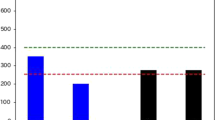Abstract
Many contemporary accounts of normative reasons for action accord a single strength value to normative reasons. This paper first uses some examples to argue against such views by showing that they seem to commit us to intransitive or counterintuitive claims about the rough equivalence of the strengths of certain reasons. The paper then explains and defends an alternate account according to which normative reasons for action have two separable dimensions of strength: requiring strength, and justifying strength. Such an account explains our intuitions in the cases that make trouble for single-value views. The justifying/requiring account is compared with two other solutions that have been offered to justify and explain our intuitions about these sorts of cases. These other solutions appeal to the notions of incommensurability of reasons, and to second-order normative entities called `exclusionary permissions'. It is argued that the justifying/requiring distinction provides a superior solution.
Similar content being viewed by others
REFERENCES
Brandt, Richard: 1979, A Theory of the Good and the Right, Oxford University Press, Oxford.
Brennan, Samantha: 2002, ‘Moderate Deontology, Moral Obligations, and the Two Threshold Thesis’, presentation to the Central Division APA, Chicago, IL, April 28, 2002.
Broome, John: 1999, ‘Normative Requirements’, Ratio 12, 398-419.
Cohen, G. A.: 1996, ‘Reason, Humanity, and the Moral Law’, in C. Korsgaard (ed.), The Sources of Normativity, Cambridge University Press, Cambridge, 167-188.
Chang, Ruth (ed.): 1997, Incommensurability, Incomparability, and Practical Reason, Harvard University Press, Cambridge.
Darwall, Stephen: 1983, Impartial Reason, Cornell University Press, Ithaca.
Darwall, Stephen: 1990, ‘Autonomist Internalism and the Justification of Morals’, Noûs 24, 257-268.
Doris, John: 1998, ‘Persons, Situations, and Virtue Ethics’, Noûs 32(4), 504-530.
Foot, Philippa: 1978, ‘Reasons for Action and Desires’, in Virtues and Vices, Basil Blackwell, Oxford.
Gert, Joshua: (forthcoming), Brute Rationality, Cambridge University Press, Cambridge.
Gert, Joshua: 2002, ‘Korsgaard's Private-Reasons Argument’, Philosophy and Phenomenological Research 64, 303-324.
Gert, Joshua: 2001, ‘Skepticism About Practical Reasons Internalism’, Southern Journal of Philosophy 39, 59-77.
Gert, Joshua: 2000, ‘Practical Rationality, Morality, and Purely Justifactory Reaons’, American Philosophical Quarterly 37, 227-243.
Gibbard, Allan: 1990, Wise Choices, Apt Feelings, Harvard University Press, Cambridge.
Herman, Barbara: 1993, The Practice of Moral Judgment, Harvard University Press, Cambridge.
Isen, Alice and Paula Levin: 1972, ‘The Effect of Feeling Good on Helping: Cookies and Kindness’, Journal of Personality and Social Psychology 21, 384-388.
Kagan, Shelly: 1989, The Limits of Morality, Oxford University Press, New York.
Korsgaard, Christine: 1996, The Sources of Normativity, Cambridge University Press, Cambridge.
Nagel, Thomas: 1970, The Possibility of Altruism, Princeton University Press, Princeton.
Parfit, Derek: 1997, ‘Reasons and Motivation’, Aristotelian Society Supplement 71, 99-130.
Perry, Stephen: 1992, ‘Second-Order Reasons, Uncertainty and Legal Theory’, Southern Calfornia Law Review 62, 913-994.
Railton, Peter: 1986, ‘Facts and Values’, Philosophical Topics 14, 5-31.
Raz, Joseph: 1999a, Practical Reason and Norms, Oxford University Press, New York.
Raz, Joseph: 1999b, Engaging Reason, Oxford University Press, New York.
Raz, Joseph: 1975, ‘Permissions and Supererogation’, American Philosophical Quarterly 12, 161-168.
Rosati, Connie: 1995, ‘Persons, Perspectives, and Full Information Accounts of the Good’, Ethics 105, 296-325.
Scanlon, T. M.: 1998, What We Owe To Each Other, Harvard University Press, Cambridge.
Skorupski, John: 1999, ‘Irrealist Cognitivism’, Ratio 12, 436-437.
Smith, Michael: 1994, The Moral Problem, Blackwell, Cambridge.
Wiggins, David: 1998, Needs, Values, Truth, 3rd edn, Oxford University Press, New York.
Author information
Authors and Affiliations
Rights and permissions
About this article
Cite this article
Gert, J. Requiring and Justifying: Two Dimensions of Normative Strength. Erkenntnis 59, 5–36 (2003). https://doi.org/10.1023/A:1023930108900
Issue Date:
DOI: https://doi.org/10.1023/A:1023930108900




